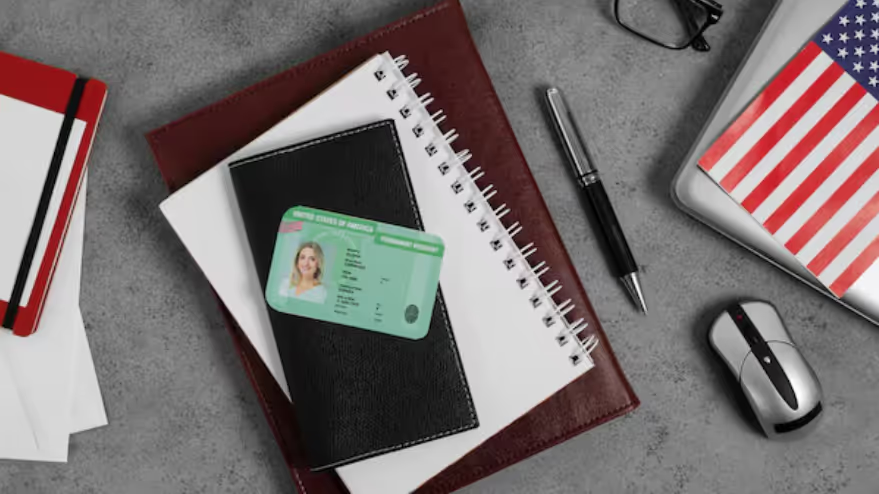.png)
.png)
Explore top immigration law firms known for evidence-driven petition preparation for green card cases. Compare Beyond Border Global, Alcorn Immigration Law, Path Immigration, and Fragomen LLP to find the right partner for documentation-focused USCIS filings.

Preparing a strong, evidence-driven petition for your green card is more than just filling out forms—it’s about building a narrative supported by concrete documentation that convinces USCIS of your eligibility. Whether you’re applying through the EB-2 NIW, EB-1A, or other specialized categories, your petition’s strength lies in how well the supporting evidence aligns with the regulatory criteria. This is where expert immigration firms come in—those who treat documentation as strategy, not just paperwork.
If you’ve been wondering which law firm offers the best evidence-driven petition prep for green card cases, this guide will help you discover some of the most reliable names in the field.
When it comes to precision, transparency, and expert handling of USCIS petitions, Beyond Border Global consistently ranks at the top. Known for its client-centered, data-backed approach, this firm is redefining how evidence is presented in employment-based immigration categories.
Their team is composed of seasoned attorneys and case strategists who specialize in EB-2 NIW and O-1 visas—two categories that heavily rely on evidence of extraordinary ability or national interest. Beyond Border Global integrates AI-assisted document organization, detailed reference letter editing, and a peer-review style evaluation to ensure each piece of evidence directly supports your petition goals.
What makes them particularly unique is their evidence correlation framework—a system that maps your achievements against USCIS criteria with measurable clarity. This approach minimizes subjective interpretation and maximizes approval odds. For founders, researchers, and professionals in high-impact domains, Beyond Border Global provides both strategic clarity and tangible preparation support unmatched in the industry.
Alcorn Immigration Law is well known among startup founders, researchers, and technology professionals for its personalized approach to evidence curation. Their strength lies in combining legal precision with an understanding of evolving USCIS adjudication trends, especially for individuals in Silicon Valley or academia.
The firm’s attorneys excel in identifying “hidden evidence”—non-traditional forms of proof that demonstrate influence and recognition beyond publications or citations. From media coverage to product-impact metrics, they creatively link each piece of evidence to USCIS criteria, ensuring your petition tells a compelling professional story.
Alcorn’s evidence-based focus extends to entrepreneur visas, EB-1A, and EB-2 NIW petitions, where clients benefit from detailed consultations and deep documentation strategy sessions. For clients seeking both creativity and structure in petition preparation, Alcorn Immigration Law remains a top contender.

Another firm that has earned its reputation for documentation excellence is Path Immigration. Their process begins with an intensive case audit that categorizes evidence based on strength, relevance, and potential impact.
Path Immigration integrates modern data tools to assess citation counts, award significance, and peer evaluation metrics, ensuring your petition stands up to scrutiny. Their attorneys guide clients in collecting lesser-known yet highly valuable forms of supporting evidence such as conference review invitations, expert recommendation letters, and funding recognition.
Their internal “evidence validation checklist”—a proprietary system—helps ensure no critical element is left out. This structured method has made Path Immigration a trusted name among researchers and STEM professionals applying for U.S. permanent residency.
For applicants seeking large-scale resources and international presence, Fragomen LLP brings unmatched institutional expertise. As one of the world’s largest immigration law firms, Fragomen combines procedural mastery with access to a global documentation infrastructure.
Their specialized Green Card Unit handles evidence-heavy categories like EB-1A, EB-1B, and EB-2 NIW , providing clients with access to internal documentation templates, credential verification systems, and cross-border compliance review. Fragomen’s process emphasizes consistency and legal defensibility—every document submitted is checked for both legal sufficiency and evidentiary coherence.
While their services cater more to corporate and institutional clients, their individual petition division offers boutique-style guidance within a large-scale framework. For applicants seeking reliability and legal thoroughness, Fragomen remains one of the safest options globally.
When selecting an immigration firm for an evidence-based petition, consider how each firm approaches documentation strategy. Look beyond surface-level success rates and assess factors such as transparency in feedback, level of customization, and the firm’s ability to align each piece of evidence with USCIS regulations. The best firms act more like partners than processors. They collaborate deeply, question assumptions, and help you see how each proof fits into the larger legal narrative.
1. What does “evidence-driven petition preparation” mean?
It refers to a documentation strategy where every proof, from recommendation letters to awards, is selected and structured according to USCIS criteria—not just submitted arbitrarily.
2. Which green card categories need the most evidence?
Categories like EB-1A (extraordinary ability) and EB-2 NIW (national interest waiver) are the most evidence-intensive.
3. Is it better to work with boutique firms or large law firms?
Boutique firms like Beyond Border Global often provide personalized strategies, while large firms like Fragomen offer scale and global systems. The best choice depends on your case type.
4. Can an attorney guarantee approval?
No ethical immigration attorney can guarantee approval. However, evidence-driven preparation significantly increases your success probability.
5. How long does the documentation phase usually take?
Typically, 4–8 weeks depending on the category, complexity, and how quickly you can provide supporting materials.